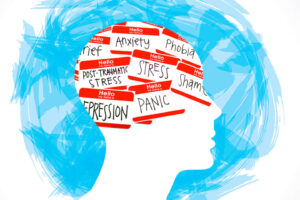The word “wellness” is everywhere these days, but what is it, and what does it mean for you? True wellness involves much more than just physical health. Wellness promotes change, growth, education, happiness, preventive health, and achieving lifelong goals.
The Health Wellness Wheel can contribute to your well-being. Developed by accredited health and wellness experts, the Wellness Wheel is a great starting point to begin your health journey. Afte.
Introducing the Wellness Wheel
What’s a wheel without spokes? To help maintain balance and prioritize areas essential for your health and happiness, the Wellness Wheel was designed with six “spokes,” or lifestyle strategies, that provide a roadmap for success.
- Mental and Behavioral Health
- Purpose-Driven Living
- Stress Management
- Sleep
- Nutrition
- Physical Activity
Mental and behavioral health
Caring for your emotional and psychological well-being is just as important as physical self-care. Prioritize getting enough sleep, healthy eating, regular exercise, and staying socially connected to support mental health. When feeling down or worried, coping strategies such as meditation, mindfulness and positive thinking can help.
But sometimes behavioural and mental health counselling can help when our challenges begin to affect our quality of life. Untreated behavioural issues such as anxiety and depression can affect our ability to participate in healthy habits. No matter how you’re feeling, always remember that you are not alone and that help is available.
Purpose-driven living
Having a sense of meaning and direction can motivate you toward a more fulfilling life. Reflect often on your core values and what brings you joy to ensure your daily actions align with your purpose. Volunteer work, creativity, community connection and meditation on purpose can help you live intentionally. Keep an open, growth-focused mindset to continue evolving.
Stress Management

Some stress is normal, but too much can quickly hurt mental and physical health. To control stress, you can practice calming rituals like meditation, journaling, deep breathing, and quiet walks outdoors. Meditation through mindfulness, visualization, or mantra chanting can provide mental clarity.
Saying no to extra duties helps keep balance. Also, make time to recharge by doing things you enjoy. There’s plenty of research that says keeping stress managed boosts your resilience to life’s challenges.
Sleep
Quality sleep recharges the body and brain. It is advised aiming for 7-9 hours nightly and keeping a consistent bedtime routine.
“Sleep hygiene is vital to boosting the health of our immune system, which defends the body against infection. You should try to go to bed at the same time and wake up at the same time every day.
The study says drinking too much alcohol can interfere with sleep, especially the deep sleep that’s critical for your body’s antiviral immune response. Other key habits to develop for better sleep include limiting screen time before bed and creating a cool, comfortable sleep environment. Getting enough sleep improves mood, focus and decision-making throughout the day. It’s vital for health.
Nutrition

Eat more whole plant foods,” says certified lifestyle medicine practitioner Erika Graziani, who’s also a registered dietitian with Lee Health.
“Eating a variety of nutritious foods provides energy and supports the body’s needs. Fuel up on fiber-rich fruits, vegetables, whole grains, beans and legumes, nuts and seeds, which also happen to be rich in antioxidants and phytonutrients,” Erika says. “Staying hydrated is important too. Investingsome time in meal prep can lead to more healthful choices. While occasional treats are fine, ensuring that most of your food choices come from quality foods will help you to feel the best.”
Physical activity

“Move it to maintain it,” “Start with movements and exercise that you enjoy doing. When you like doing something, you’re more likely to keep doing it. For example, getting outside for walks or bike rides can be motivating.
“Movements and exercise provide all kinds of benefits. Track your activity so you get at least 30 minutes each day if you can. You’ll feel more energized mentally and physically on days you’re active.”



